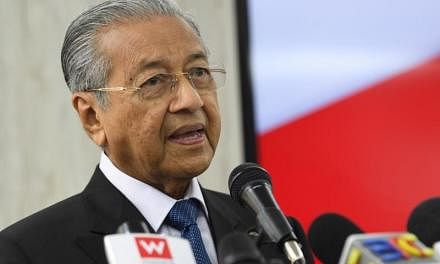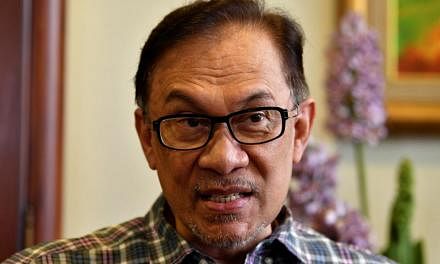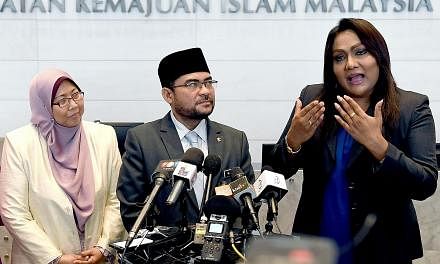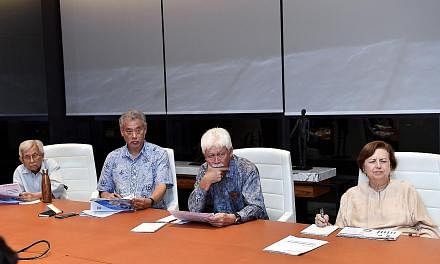KUALA LUMPUR • Malaysian Prime Minister Mahathir Mohamad said yesterday that an anti-fake news law introduced by the previous administration will be given "proper" definition, making it clear to the media and the public what is fake.
"Even though we support freedom of press and freedom of speech, there are limits," Tun Dr Mahathir said in a live telecast on state TV.
Abolishing the anti-fake news law was one of Dr Mahathir's campaign promises, but his latest comments point to a re-defining of the controversial law rather than removing it altogether.
"The fake news law will be given a new definition so that the public and media outlets will know what is fake news and what is not fake," he said. Former prime minister Najib Razak's government approved the Anti-Fake News 2018 Bill last month, which set out fines of up to RM500,000 (S$169,000) and a maximum six years in jail for violators.
Dr Mahathir, when he was prime minister for 22 years to 2003, used security laws to put his political opponents behind bars, and his critics say he restricted free speech and persecuted political rivals.
The current law defines fake news as "news, information, data and reports which is or are wholly or partly false" and includes features, visuals and audio recordings.
It covers digital publications and social media, and will apply to offenders who maliciously spread "fake news" inside and outside the country, including foreigners, if Malaysia or a Malaysian citizen is affected.
Malaysia is among the first few countries to introduce a law against fake news it. It already has an arsenal of laws, including a Sedition Act, to clamp down on unfavourable news and social media posts.








